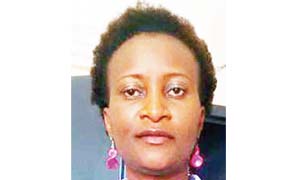THERE is a popular song by the late Whitney Houston which contained the lyrics “Where do Broken Hearts Go? Can they find their way back to the open arms of the love that is waiting there?”
For me this song reminds me of every abused partner who cannot find their way back home because separation or divorce from an abusive partner is never an option for their families despite the gravity of abuse that they go through.
This was Maria’s (not real name) story, whose father and mother said she had to return to her abusive husband as everything was going to be well after discussing as families.
“When I finally got a box of chocolates and an expensive bottle wrapped in a colourful gift box from my husband, it was clear that this apologetic style had become s norm. Three years in marriage, the abuse continued after I had my first child, and it just escalated from there and got worse.
“This was his way of apologising to me, unfortunately, I did not realise how terrible that was until it led to countless physical abuse that saw me miss work and my online tutorial lessons,” she said.
Falling in love with an abusive partner can be painful, especially if your family cannot stand up for you when you disclose about the abuse.
Maria remembers that moment when she went to visit her family within the city after her boyfriend had proposed to marry her.
Naturally, we introduce our partner to our friends and family with the hope of getting their approval and we are so proud to show them off.
Because we build that trust with the hope that we have finally found our future partner, we share our dreams for the future, and eventually learn the fine art of compromising in a relationship because we know it is worth it.
Sadly, domestic abuse or violence sometimes comes from the hearts of the people we are bound to by blood, a painful experience that victims have to endure.
Unfortunately, for Maria she could not understand why her father and mother forced her to return to her abusive partner.
“They were all aware of my abusive relationship, my husband’s infidelities and insecurities because I was upgrading my career but, instead they chose to protect the “perfect family” image and did nothing about it,” she said.
She shared how her partner loved her but, she came to learn that he had a baggage, trauma and a challenge with his mental wellbeing which he hid while they were dating, only to manifest a few months later in marriage.
It is important for families to understand that forcing women to return to abusive relationships without seeking proper therapy for both the perpetrator and the victim may put women at even greater risk.
Some psychologists have suggested that abusive partners may perceive women’s attempts to leave as disobedience, and so may respond with increased violence when they return.
Further studies indicate that women who leave their partners temporarily may be subjected to greater violence than those who stay in the relationship.
This was true for Maria, as her partner perceived her return from her family after a fearful encounter as disobedience, and so he responded with increased violence when she returned.
For perpetrators this is one way of punishing their spouse, exerting their power on their victims who leave them temporarily.
But Maria decided to sever the relationship, disobeying her family. According to her, she could not inherit a legacy of abuse because she witnessed how her father physically abused her mother.
It is important to know that some women who endured and remained in abusive relationships will encourage their daughters to return to their abusive homes.
Sometimes, victims of abuse may perceive it as love if they witnessed their mothers survive an abusive relationship and also children may view their abusive fathers as their hero.
As for Maria, her mother told her she never left because she did not want her children to come from a broken home yet, that home was broken anyway.
Some women, who are survivors of abuse, will give themselves as an example and try to convince their daughters that things will eventually work out, hence, going back is the only way.
Abusers never change, all of the begging, the pleading that Maria’s partner showed did not yield any positive response to their relationship.
We can only address some challenges of domestic violence when the family’s responsibility is not left with the police and other stakeholders.
There is need to believe women who are victims of abuse because they know the situation best and forcing them to go back to abuse is not the solution.
Understanding and trusting women is one of the most important things society can offer to create a safe space for a woman and help her make her decision to leave a relationship if the perpetrator is not willing to be helped.
To all partners, buying flowers or gifts if you want to apologise is not a bad thing.
However, there must be a genuine apology where one recognises what they have done is wrong and this must be discussed by both parties.
Abuse and violence have long-lasting effects on victims.
It is important to seek therapy as a perpetrator as this will help in building a healthy relationship with your partner.
As for Maria, she chose to disappoint her family this time around as she left her matrimonial home and went to live with a friend while she could begin a new chapter with her daughter.
Jessiengm@mail.com







